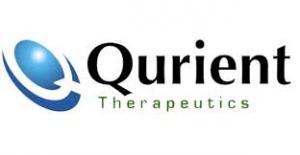
Qurient has established a joint venture with Professors Robert Huber, a researcher at Max-Planck-Institut für Biochemie and the winner of the Nobel Prize in Chemistry in 1988, and Michael Hamacher of the Lead Discovery Center (LDC).
Both Max-Planck-Institut für Biochemie and LDC are based in Germany.
The joint venture will develop anticancer drugs and immunotherapy using proteasome inhibition technology, Qurient said in a press release on Friday.
Proteasome is a complex of protease involved in cancer cell growth. One of the most well-known treatments that use proteasome is Takeda’s Velcade. The drug is a blockbuster drug with 5 trillion won ($4.1 billion) in sales in 2018. Takeda acquired the drug from Millennium pharmaceuticals, a U.S. firm, for about 10 trillion won in 2008.
Qurient had been consulting with Max-Planck-Institut and LDC to secure their proteasome inhibition technology and agreed with the two German institutions to acquire the technology at the current optimizing stage. As the company has managed to set up a joint venture firm with the two institutes, it expects to accelerate research using the underlying technologies and development capabilities of the Max-Planck-Institut and LDC.
Qurient will be the major shareholder of the joint venture, while Max-Planck-Institut, LDC and Professor Huber will invest in the company as shareholders.
“The company has increased its chance of success as both the German research institutes and Professor Huber will participate in future research and development as shareholders of the joint venture,” Qurient CEO Nam Ki-yean said.

